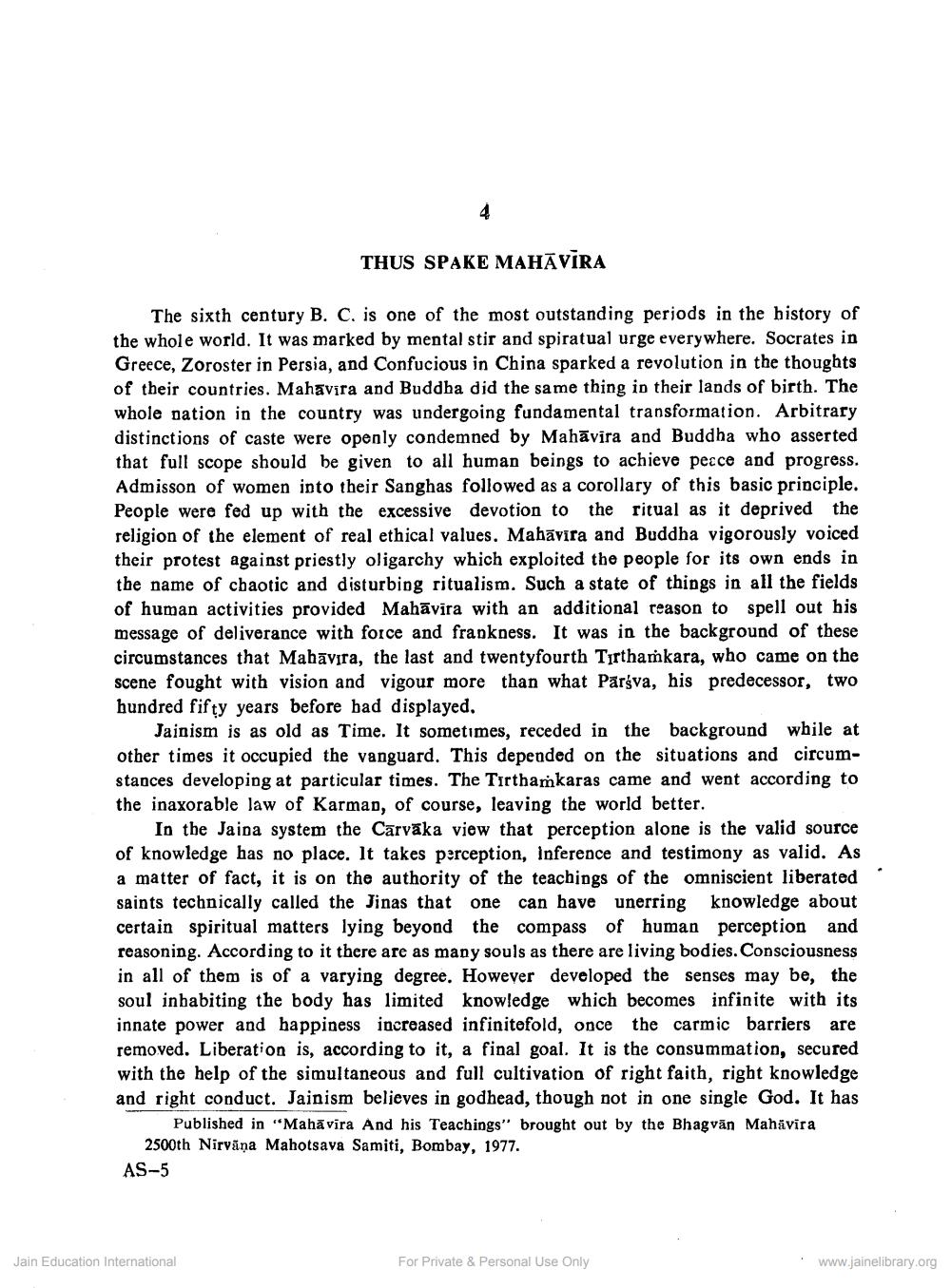________________
THUS SPAKE MAHĀVĪRA
The sixth century B. C. is one of the most outstanding periods in the history of the whole world. It was marked by mental stir and spiratual urge everywhere. Socrates in Greece, Zoroster in Persia, and Confucious in China sparked a revolution in the thoughts of their countries. Mahavira and Buddha did the same thing in their lands of birth. The whole nation in the country was undergoing fundamental transformation. Arbitrary distinctions of caste were openly condemned by Mahāvira and Buddha who asserted that full scope should be given to all human beings to achieve pecce and progress. Admisson of women into their Sanghas followed as a corollary of this basic principle. People were fed up with the excessive devotion to the ritual as it deprived the religion of the element of real ethical values. Mahāvīra and Buddha vigorously voiced their protest against priestly oligarchy which exploited the people for its own ends in the name of chaotic and disturbing ritualism. Such a state of things in all the fields of human activities provided Mahāvira with an additional reason to spell out his message of deliverance with force and frankness. It was in the background of these circumstances that Mahavira, the last and twentyfourth Tirthamkara, who came on the scene fought with vision and vigour more than what Parsva, his predecessor, two hundred fifty years before bad displayed.
Jainism is as old as Time. It sometimes, receded in the background while at other times it occupied the vanguard. This depended on the situations and circumstances developing at particular times. The Tirthamkaras came and went according to the inaxorable law of Karman, of course, leaving the world better.
In the Jaina system the Cārvāka view that perception alone is the valid source of knowledge has no place. It takes perception, inference and testimony as valid. As a matter of fact, it is on the authority of the teachings of the omniscient liberated saints technically called the Jinas that one can have unerring knowledge about certain spiritual matters lying beyond the compass of human perception and reasoning. According to it there are as many souls as there are living bodies. Consciousness in all of them is of a varying degree. However developed the senses may be, the soul inhabiting the body has limited knowledge which becomes infinite with its innate power and happiness increased infinitefold, once the carmic barriers are removed. Liberation is, according to it, a final goal. It is the consummation, secured with the help of the simultaneous and full cultivation of right faith, right knowledge and right conduct. Jainism believes in godhead, though not in one single God. It has
Published in "Mahāvira And his Teachings” brought out by the Bhagvān Mahävira 2500th Nirvana Mahotsava Samiti, Bombay, 1977. AS-5
Jain Education International
For Private & Personal Use Only
www.jainelibrary.org




